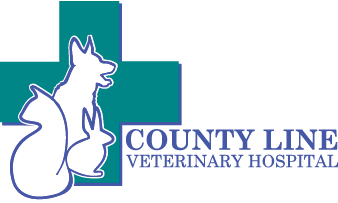Pet Health Articles
-
Lameness in Dogs
Si un perro no puede moverse de forma normal se dice que está cojo. Las causas de cojera más habituales son el dolor en una articulación o en sus estructuras de soporte o bien la inestabilidad de una articulación.
-
Colchicine is given by mouth and is used off label in dogs and birds, primarily to treat amyloidosis and Shar-Pei fever. Its use in veterinary medicine is largely experimental and its effectiveness has not been well documented. Give as directed by your veterinarian.
-
Colitis refers to inflammation of the large intestine (colon). Colitis most commonly describes diarrhea or loose stools associated with the large bowel. Large bowel diarrhea is another term for colitis. This handout discusses signs, causes, diagnosis, and treatment.
-
Choosing the right collar or harness for a dog requires understanding how each device works and what is best for the dog and the owner. Correct selection, fit, and use are crucial for any training tool's success.
-
Elizabethan Collars in Dogs
Los collares isabelinos se utilizan para prevenir interferencias con cualquier vendaje o herida. Es normal que los perros se laman las heridas, pero esta práctica puede retrasar mucho la cicatrización y provocar infecciones. Por eso es importante que se deje puesto el collar, en especial cuando el perro está sólo.
-
Head Halter Training for Dogs
Los collares de cabeza se utilizan como alternativa a los collares convencionales porque tienen muchas ventajas. Por un lado, permiten conseguir un mejor control del animal con menos esfuerzo; por otro lado, los perros que tiran demasiado con los collares tradicionales pueden lesionarse el cuello y, aunque los collares de cabeza tampoco deberían utilizarse cuando este tipo de lesiones ya se ha producido, son por lo general más seguros y evitan que el animal se agobie y se encuentre parcialmente asfixiado al tirar.
-
Gentle, graceful and sweet, the Collie wags her tail gently whenever approached. Eyes seem to smile their welcome. They're willing to do the same chore again and again, only asking a loving touch in thanks.
-
Collie eye anomaly (CEA), also called “collie eye defect,” is an inherited, developmental disease in dogs in which there is a mutation of the gene that determines the development of the eye. This mutation results in defects of many layers of the back of the eye. The most common sign of CEA is blindness.
-
Colloidal oatmeal topical (brand name DermAllay®, Epi-Soothe, others) is an anti-inflammatory, antipruritic (anti-itching), and emollient (softening, soothing) agent used in the treatment of surface skin disorders and skin reactions in cats and dogs. It is made from oat grains (Avena sativa). Colloidal oatmeal topical comes in spray, cream rinse, and shampoo forms.
-
Colloidal silver (VetraSeb™ Silver) is a solution (mixture) of nanoparticles of silver. It is used by some as a possible natural alternative to antibiotics for fighting infections, including bacterial, fungal, and viral infections in dogs, cats, and horses.

